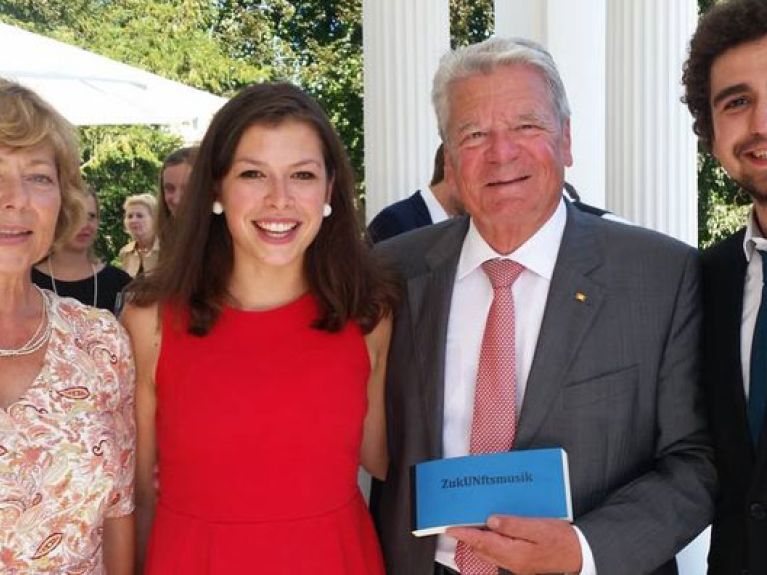United Nations youth delegates
Two youth delegates are representing Germany’s young generation at the 70th United Nations General Assembly.

So far Carina Lange has not had time to get excited. She has just completed her Master’s degree in international politics, and before that she travelled throughout Germany for six months. On 1 October she and Alexander Kauschanski travelled together to New York to take part in the 70th United Nations General Assembly until 28 October. As German youth delegates they will be voicing the interests of their generation. Carina is 24 years old and grew up in the Lüneburg Heath area. And 21-year-old Alexander also studied political science. He was born in the Ukraine and grew up in Aachen. The two are accompanying the German delegation to the UN General Assembly. They will be giving a speech there on behalf of the youth of their home country. Carina is quite confident about talking in front of the politically experienced delegates. But the fact that all of her friends back home can follow her speech live on the Internet is slightly more daunting. She wants to get things right – and that she definitely can do. This is because she is rapidly becoming not only a political professional, but is also gaining media experience. She is already good at giving interviews with confidence.
“Young people are very open towards internationality”
What do young people in Germany think? Carina and Alexander travelled together throughout Germany for six months in or order to find out. They met around a thousand young people in schools, organisations, association, on the streets and in a prison for young offenders and had discussions with them. Now the two of them are a kind of trend indicator reflecting the moods and motivations of young people and what they expect from politics. “Quite often young people would prefer to have greater access. Politicians often seem aloof and distanced. We are looking for communication at eye level,” says Carina. In addition to this, she says that political education needs improvement in Germany. Genuine participation will only be possible when young people understand the system as well. This year the young people’s topics are focussed on the environment and sustainability, a future worth living for everyone, and refugees. They are looking for greater solidarity, thinking beyond the confines of national categories and view things as world citizens. “Of course, the desires of young offenders in prison are different from those of young people studying at an elite university,” Carina stresses. But basically the tendency is that “young people are very open towards internationality and think in terms of networking.”
Carina and Alexander have been politically involved for years. “We have a definite impulse to improve the world, so our role as delegates offers a great platform for this,” they say. They came across the UN youth delegates programme more or less by chance. Any young person between 18 and 24 with German citizenship can apply. There is a four stage selection procedure. In the end a jury of representatives from the Federal Foreign Office, the Ministry of Youth, the German National Committee for International Youth Work and the German United Nations Youth Association chooses the youth delegates. They should already have experience in youth work, have knowledge of international politics and be quite fluent in English.
Celebration of the 70th anniversary of the United Nations Charter on 23 October 2015 in New York

